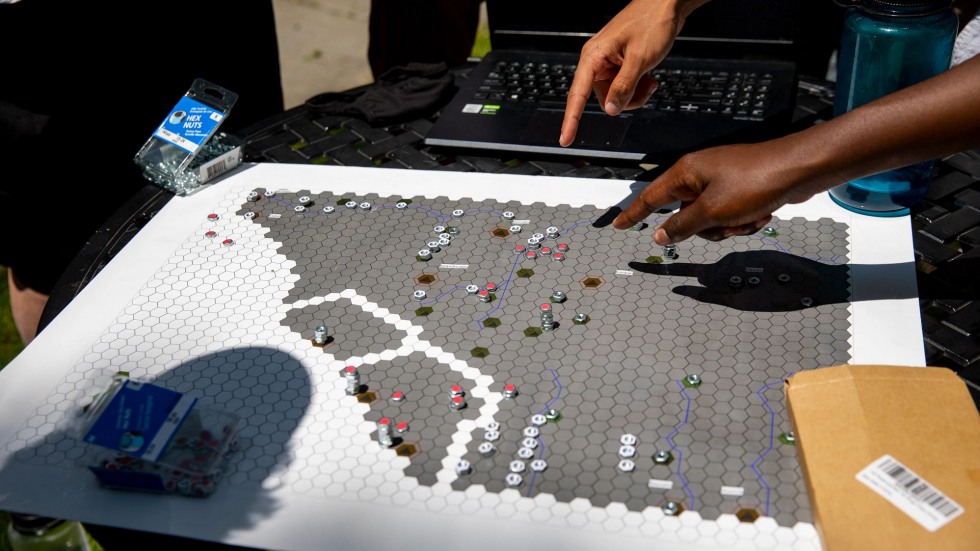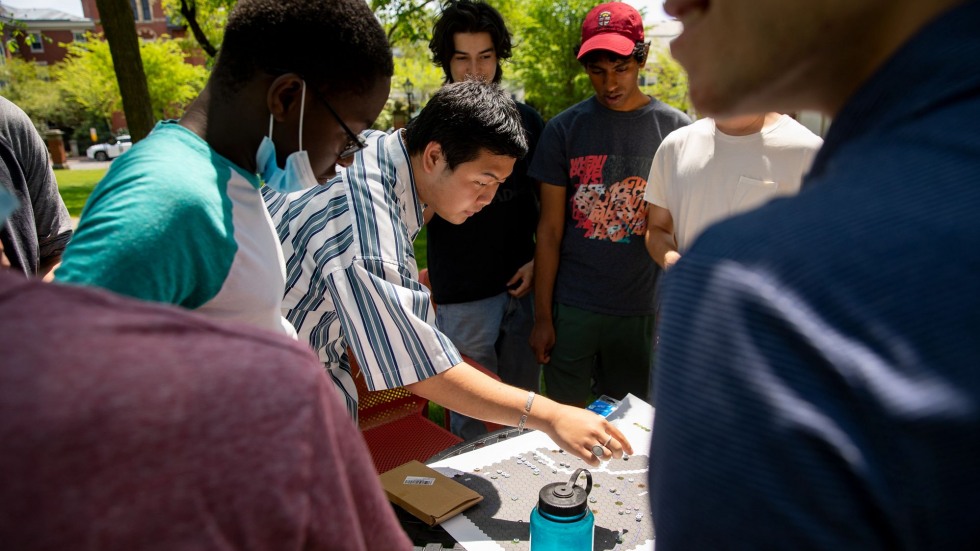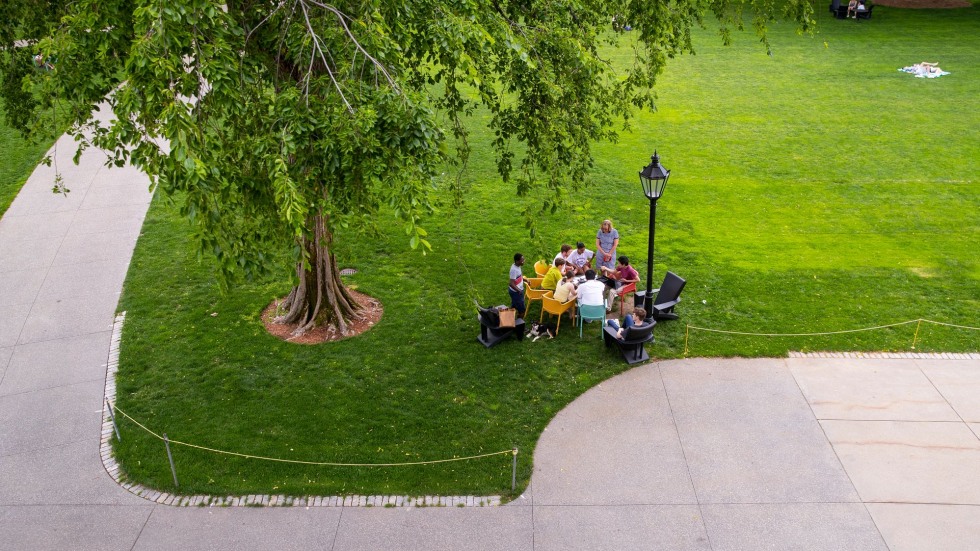PROVIDENCE, R.I. [Brown University] — Physically, the students were on Brown University’s College Green. But mentally, they were in French West Africa circa 1885, transported there by the all-consuming game “War Cabinet.”
The small group of Brown undergraduates played three against three. One side’s red pieces represented troops from the Wassoulou Empire, motivated to protect their land and peoples from European colonization. The other side’s white pieces represented the French military, determined to seize control of the area’s human and natural resources.
Hovering over a board of hexagons designed to resemble a map of French West Africa, the two sides strategized among their groups, negotiated with “Liberia” (a former student calling in from Chicago) and “Sierra Leone” (their professor), and moved their troops overland and upriver, often sparring and destroying villages along the way.
An hour and a half later, when the “war” was over, the students discovered they didn’t much care who had won or lost. They felt devastated upon realizing which silent, powerless players had truly lost the most: the civilians.
“I think that’s the big takeaway,” said Jeremy Chan, a junior at Brown and the designer of the game “War Cabinet,” which is modeled on the history of the French-Mandinka Wars. “We’re not just showing the geographical extent of the conflict or illustrating the military dynamics. We’re showing that regardless of how you fight a war, no matter which empire ends up in control, the civilians lose out.”
Chan, an urban studies and history concentrator, is spending his summer as a game designer and teaching assistant for the introductory course African Experiences of Empire, taught by Professor of History Nancy Jacobs. Thanks to funds from the College, Chan is working with Jacobs to develop games grounded in historical research, beta-testing them with student board game enthusiasts on campus and then leading Jacobs’ class of 20 in games on the College Green.
In the history course, students receive an introduction to the continent through the study of life in sub-Saharan Africa from the mid-19th through the mid-20th century, when Western European powers scrambled to invade, conquer and colonize the land. Jacobs and her students learn about the region’s imperial history by studying African civilians’ accounts from that significant century.
“I want my students to ask how people are seeing their world at that particular moment — not understanding when imperialism and decolonization are about to happen, not having the benefit of hindsight,” Jacobs said. “Studying what average people were saying, thinking and feeling puts them more in the moment. If they can bracket the outcome and concentrate on the moment, they develop a better sense of the past.”







